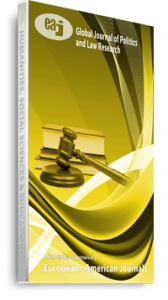2019 was a tough year in Hong Kong, which witnesses a large scale of violence and riots against an extradition bill proposed by the government. Among political controversies was the Hong Kong government’s attempt to deescalate the violent movement by proposing a ban on facial covering so as to identify protestors. Relying on the Emergency Regulations Ordinance, the government bypasses the regular legislative process, which further worsened the tensions between the government and protestors. In a call for judicial review, the Court of First Instance rendered a ruling claiming the reliance on the ERO was unconstitutional. This article takes a close look at the Court’s ruling, engaging with legal and political debates with the aim of providing (i) a detailed account of the eventful months leading up the judicial decision on the constitutionality of the Chief Executive’s invocation of the ERO, (ii) a legal analysis of the Court’s decision, and (iii) casting the issue in the light of the contrasting political process and the roles of judiciary in mainland China and Hong Kong.
Keywords: Hong Kong’s emergency regulations ordinance, conceptuality, constitutionality, contextuality, textuality

